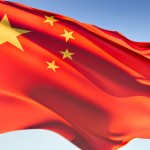Tuesday
Aug102010
The Latest from Iran (10 August): An End to the Hunger Strike?
 Tuesday, August 10, 2010 at 10:56
Tuesday, August 10, 2010 at 10:56 
1400 GMT: Let's Keep Trying This Foreign Overthrow (and Drugs to Our Schoolchildren) Shtick. Ayatollah Ahmad Jannati, the head of the Guardian Council, may have taken some criticism for claiming a US-Saudi $51 billion plot, through the Iranian opposition, for regime change, but that hasn't fazed Minister of Intelligence Heydar Moslehi.
Moslehi said Monday that foreign powers had invested $17 billion in unrest after the 2009 Presidential election. He put this in the context of a long-term campaign, "In the past 25 years, more than 80 centres and institutions for soft war have been founded and around $2 billion has been spent on them annually."
The minister said enemy methods included "fuelling ethnic and religious sensitivities especially in border areas,...(and) efforts to spread delinquency among students through satellite [channels], the Internet, (and) vulgar books", corrupting Iran's education system.
And there was more, Moslehi warned: evidence pointed to large-scale and costly efforts to wage "soft war" in the country by distributing dugs among schoolchildren.
1300 GMT: The Iran Human Rights Documentation Center has issued its latest report, examining the Iranian Government's effort to dismantle the women's rights movement.
1220 GMT: The Human Rights Lawyer. Persian2English has posted the translation of a Voice of America interview with lawyer Mohammad Mostafaei, who has fled Iran and is now in Norway. An extract:
VOA Correspondent: Why did you leave Iran?
Mostafaei: I never wanted to leave Iran. Any time someone wanted to leave Iran, I always objected and told them that there is nowhere better to work than Iran. Unfortunately [the regime] created an atmosphere for me that made me unable to fulfil my duty, but even this was bearable. What made me decide to leave Iran is solely the illegal actions of the interrogator in Branch 2 of the Shahid Moghaddas investigations office [in Evin Prison]. He illegally ordered the arrest of my wife [Fereshteh Halimi] and a bail amount of approximately $6,000. She was thrown into solitary confinement and was not set to be released until I was turned in. They held her captive for fourteen days. [The illegal processes] made be decide to leave the place I belong to and begin the difficult [journey] to another country.
1210 GMT: The Hunger Strike. Student activist Majid Tavakoli, who was said to have lost consciousness while on hunger strike, is reportedly out of critical condition.
0925 GMT: More from VP Rahimi, International Affairs Expert. Ali Akbar Dareini offers this correction to our report yesterday on 1st Vice President Mohammad Reza Rahimi's diatribe --- he called Australians a "bunch of cattlemen", not shepherds --- and adds this substantial point....
"To fight sanctions, we will remove the dollar and euro from our foreign exchange basket and will replace them with (the Iranian) rial and the currency of any country cooperating with us," Rahimi said. "We consider these currencies (dollar and euro) dirty and won't sell oil in dollar and euro."
The Iranian Government has said recently that it would trade in currencies like the dirham (United Arab Emirates), but it is unclear whether trading partners will be receptive to the idea.
Rahimi also said, "We will increase tariffs by 200 percent. We will hike it so much so that no one will be able to buy foreign goods. We should not buy the products of our enemies. Students can force their parents not to buy foreign goods."
0910 GMT: Political Prisoner Watch. Tehran Prosecutor General Abbas Jafari Doulatabadi may have granted a concession that contributed to the end of the Evin Prison hunger strike; however, according to Rah-e-Sabz, he remains defiant on other fronts.
Doulatabadi reportedly said the news from prisons is "total lies", as Iran's jails are acting completely within the law. Claims such as that of an "honour assault" on Alireza Tajik are "inventions".
Doulatabadi may want to consider the testimony of 17-year-old Ali Niknam, who claims he was abused by Revolutionary Guard intelligence officers after his arrest on 2 November: “The signs of electrical shock were visible on my shoulder, stomach, and kidney area and I suffered from bloody bowels and urine for days after my release.”
0910 GMT: Sanctions Watch. Reports indicate that Japan may consider cutting crude oil imports from Iran, having approved new sanctions in line with June's UN Security Council resolution. Tokyo, following meetings with US officials, has added 40 companies and an individual to a blacklist for freezing of assets.
0900 GMT: The Vice President Talks World Politics (Again). It looks like 1st Vice President Mohammad Reza Rahimi has decided to step up and become the Government's international affairs spokesman.
After his diatribe against the US, Australia, and "England", reported in yesterday's updates, Rahimi gets literary again, in a meeting told Iran's heads of education that "South Koreans need a slap in the face" for their imposition of sanctions on Tehran.
0710 GMT: The President's Right-Hand Man. More criticism of Ahmadinejad Chief of Staff and brother-in-law Esfandiar Rahim-Mashai....
Ayatolllah Mesbah Yazdi, in a meeting with Revolutionary Guard commanders on Monday, said, "Those who put principles (maktab) of Iran shamelessly before maktab of Islam do not belong to us! We only support those who support Islam and are loyal to the Supreme Leader."
0705 GMT: The New Battle --- Another Larijani v. Ahmadinejad.
Voice of America picks up on our featured story from Monday, the criticism by Iran's head of judiciary, Sadegh Larijani, of Mahmoud Ahmadinejad.
One Washington-based analyst, Alex Vatanka of the Middle East Institute, claims Ayatollah Khamenei is now involved: "The Supreme Leader is giving Ali Larijani the tools to stand up to the president."
0700 GMT: The claimed message from the political prisoners who have ended their hunger strike:
We will continue to insist on our human rights and the basic rights of all prisoners. We pledge to continue to fight until all prisoners who are part of our beloved nation gain access to their full legal rights.
0650 GMT: The Hunger Strike. Kalemeh is carrying the message of an "anonymous loyal support of the Greens" that all but one hunger striker has ended the protest. There are no further details.
Another website made the claim on Sunday. It is unclear whether the same anonymous source is behind both that report and Kalemeh's article.
0545 GMT: We begin today with two features and a disturbing piece of news.
In the features, Jon Lee Anderson of The New Yorker gets a 10-day visit to Iran and meets the public, with their discontent over the election, as well as President Ahmadinejad. And Arash Aramesh of insideIRAN writes about the audio that may point to Revolutionary Guard interference in the June 2009 election.
The news, from RAHANA, is that student activist Majid Tavakoli --- one of 16 or 17 political prisoners in Evin Prison --- has lost consciousness and is now in the prison infirmary.
More updates to follow...
 Mike Dunn |
Mike Dunn |  36 Comments |
36 Comments | tagged  Abbas Jafari Doulatabadi,
Abbas Jafari Doulatabadi,  Ali Akbar Dareini,
Ali Akbar Dareini,  Ali Larijani,
Ali Larijani,  Ali Niknam,
Ali Niknam,  Alireza Tajik,
Alireza Tajik,  Arash Aramesh,
Arash Aramesh,  Australia,
Australia,  Ayatollah Ahmad Jannati,
Ayatollah Ahmad Jannati,  Ayatollah Khameini,
Ayatollah Khameini,  Ayatollah Mesbah Yazdi,
Ayatollah Mesbah Yazdi,  England,
England,  Esfandiar Rahim-Mashai,
Esfandiar Rahim-Mashai,  Evin Prison,
Evin Prison,  Heydar Moslehi,
Heydar Moslehi,  Iran,
Iran,  Japan,
Japan,  Jon Lee Anderson,
Jon Lee Anderson,  Mahmoud Ahmadinejad,
Mahmoud Ahmadinejad,  Majid Tavakoli,
Majid Tavakoli,  Mohammad Mostafaei,
Mohammad Mostafaei,  Mohammad Reza Rahimi,
Mohammad Reza Rahimi,  Persian2English,
Persian2English,  RHANA,
RHANA,  Sadegh Larijani,
Sadegh Larijani,  Shahid Moghaddas,
Shahid Moghaddas,  South Korea,
South Korea,  The New Yorker,
The New Yorker,  United Arab Emirates,
United Arab Emirates,  United Nations Security Council,
United Nations Security Council,  United States,
United States,  Voice of America,
Voice of America,  ah-e-Sabz in
ah-e-Sabz in  Middle East & Iran
Middle East & Iran
 Abbas Jafari Doulatabadi,
Abbas Jafari Doulatabadi,  Ali Akbar Dareini,
Ali Akbar Dareini,  Ali Larijani,
Ali Larijani,  Ali Niknam,
Ali Niknam,  Alireza Tajik,
Alireza Tajik,  Arash Aramesh,
Arash Aramesh,  Australia,
Australia,  Ayatollah Ahmad Jannati,
Ayatollah Ahmad Jannati,  Ayatollah Khameini,
Ayatollah Khameini,  Ayatollah Mesbah Yazdi,
Ayatollah Mesbah Yazdi,  England,
England,  Esfandiar Rahim-Mashai,
Esfandiar Rahim-Mashai,  Evin Prison,
Evin Prison,  Heydar Moslehi,
Heydar Moslehi,  Iran,
Iran,  Japan,
Japan,  Jon Lee Anderson,
Jon Lee Anderson,  Mahmoud Ahmadinejad,
Mahmoud Ahmadinejad,  Majid Tavakoli,
Majid Tavakoli,  Mohammad Mostafaei,
Mohammad Mostafaei,  Mohammad Reza Rahimi,
Mohammad Reza Rahimi,  Persian2English,
Persian2English,  RHANA,
RHANA,  Sadegh Larijani,
Sadegh Larijani,  Shahid Moghaddas,
Shahid Moghaddas,  South Korea,
South Korea,  The New Yorker,
The New Yorker,  United Arab Emirates,
United Arab Emirates,  United Nations Security Council,
United Nations Security Council,  United States,
United States,  Voice of America,
Voice of America,  ah-e-Sabz in
ah-e-Sabz in  Middle East & Iran
Middle East & Iran 



